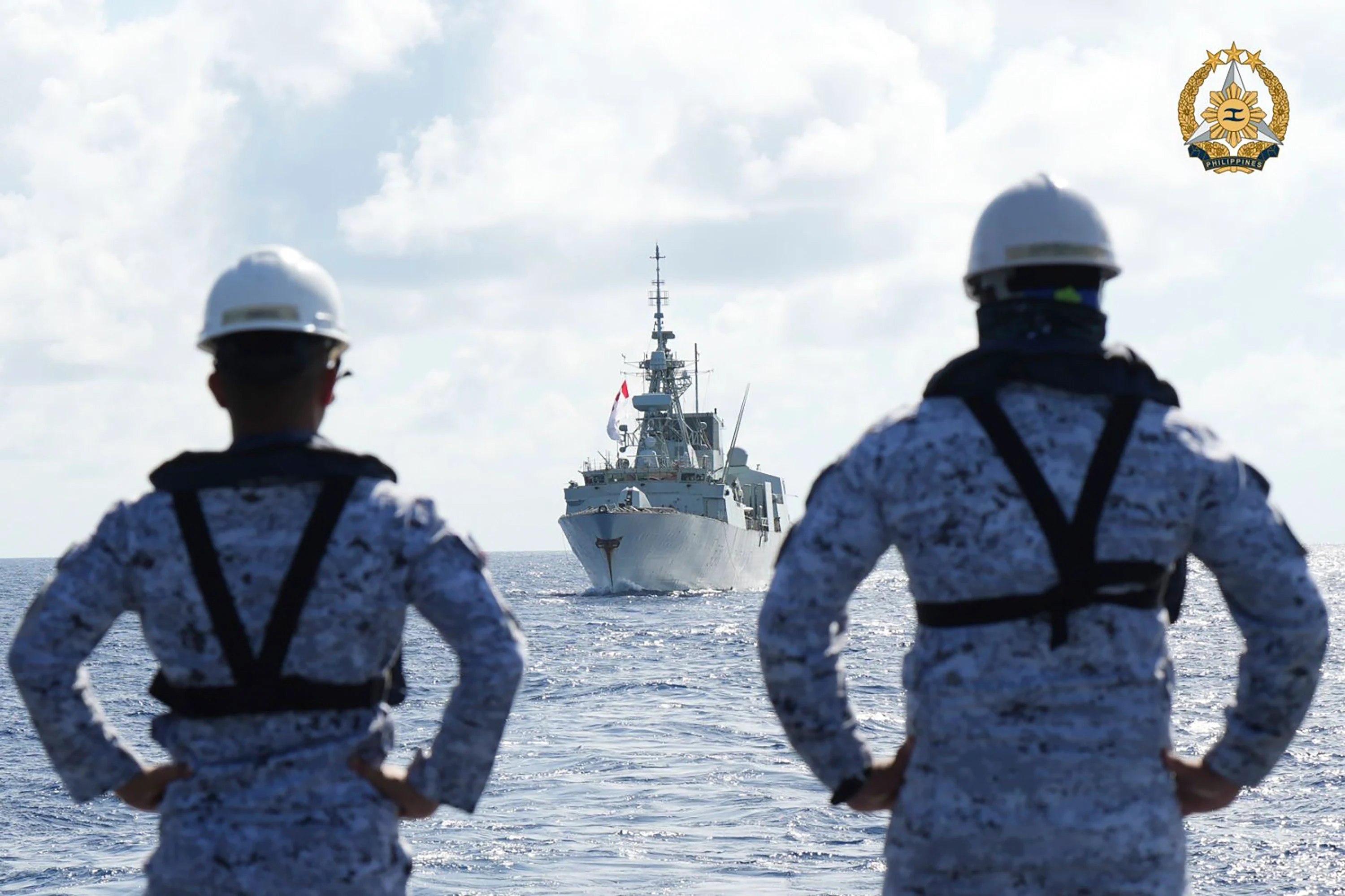Copyright scmp

The Philippines and Canada are set to sign a visiting forces agreement, a military cooperation pact that would allow troops from both countries on each other’s soil for joint exercises and other activities amid China’s increasing influence in the region. Canadian Minister of National Defence David McGuinty will be in Manila on Sunday to hold bilateral meetings with Philippine Defence Secretary Gilberto Teodoro Jnr and sign the agreement, according to an advisory released by the Department of National Defence on Wednesday. The signing of the agreement follows steps by Manila and Ottawa to deepen their security relations since inking a Memorandum of Understanding on Defence Cooperation in January last year. Cooperation between both countries “has expanded both in breadth and depth across all areas of defence, especially in maritime security, cybersecurity and capacity building”, according to a statement by the Philippines’ Department of Foreign Affairs in April. Analysts called the agreement a natural step forward in the deepening security ties between the Philippines and Canada as both countries were concerned about China’s military build-up in the Indo-Pacific region. Don McLain Gill, an international relations lecturer at De La Salle University, told This Week in Asia that the agreement allowed both countries to efficiently deploy troops and circumvent the bureaucratic delays that come with joint military exercises. “The [agreement] would streamline military-to-military cooperation with the Philippines, and this would in fact reiterate and reinforce the 2024 memorandum of understanding,” the geopolitical analyst said. Julio Amador, the interim president of the Foundation for the National Interest and founder and trustee of the non-profit policy advisory firm FACTS Asia, called the agreement the “next step”. It creates a legal framework for ramping up military-to-military activities – including the annual Balikatan exercises with the US – which will benefit the Philippines’ armed forces and increase operability with Canada’s troops, according to him. “A visiting forces agreement with Canada strengthens the Philippines’ network of partners on defence and military issues, and indicates that diplomatic and military cooperation is increasing and deepening,” he said. Amador added that the agreement added to the Philippines’ potential deterrence strategy and showed that the country was “beginning to move beyond just exposing China’s belligerent behaviour”. “When looking at the strategic environment from the South China Sea to the cross-straits, the [agreement] creates a partnership between the two countries that hints at alignment on how to respond to a China that is becoming more confident in flexing its muscles,” Amador said. Away from Washington’s shadow Analysts say that the defence pact comes amid a fundamentally changed strategic environment, with the deal providing mutual benefits for both countries – particularly as Canada moves away from the shadow of the US in the region. “When it comes to the security threats that the Philippines is facing, adding more defence partners is a critical component of, hopefully, a bigger strategy than what we are currently seeing right now,” Amador said. “The [agreement} is an indication that the Philippines is actively identifying like-minded partners as it responds to a strategic environment that has fundamentally changed.” Meanwhile, Gill called the Philippines “a natural partner for Canada” and one of the North American country’s anchors in its Indo-Pacific strategy, which it launched in 2022. Ottawa has committed C$2.3 billion (US$1.6 billion) over five years to developing its security engagement in the region. Chester Cabalza, founder and president of the think tank International Development Security and Cooperation, said that the “Philippines’ like-minded friends” such as Canada were “all in a hurry to strike a defence deal while the iron is hot”. “Both Ottawa and Manila are enjoying the momentum as Canadians and Filipinos lead the marathon on international rules-based order,” he said. Cabalza pointed out that the Philippines has benefited from Canada’s satellite-powered dark vessel detection programme used in the West Philippine Sea, Manila’s exclusive economic zone within the South China Sea, to detect ships from the China Coast Guard and maritime militia that have “gone dark” or turned off their automatic identification system trackers. Canada had “made a name for itself as a trusted, functional security partner of the Philippines”, Gill said. “Our security relationship with Ottawa took off in a relatively short amount of time. Within just two years, we were able to accomplish so much in terms of broadening and deepening our security partnership,” he said, referring to the dark vessel detection programme support and the joint sail activities between both countries. However, Gill added that naval exercises should not be the primary cornerstone of the security partnership between both countries, and stressed that other areas should be highlighted and leveraged, such as cyber defence. “Canada has a very robust experience in cyber defence and the cybersecurity threats that the Philippines continues to ... face on a daily basis. Canada is a natural partner in this regard, and I think that we have much to tap and maximise when it comes to our cybersecurity cooperation,” he said. Shipbuilding was another strong point for the partnership, Gill said, adding that Canada could play a role in the imparting of technology, technical cooperation, and skills-building as Manila looks to strengthen its shipbuilding capabilities. Meanwhile, Manila can serve as a gateway for Ottawa to further deepen its engagement in the region, with the Philippines seen as “one of the success stories of Canada’s Indo-Pacific strategy”, Gill said. “By improving its security relations to the Philippines, this could eventually be a stepping stone for other countries in the region. We’ve seen Canada and Indonesia sign their first-ever bilateral free trade agreement,” he said. “So we see how Canada has also been perceived more positively in the region, away from the common misconception that Canada is basically just a reflection or shadow of the US strategy in the Indo-Pacific. Canada has clearly shown great agency, and this is something that would benefit its objectives in the region as it seeks to diversify its security and economic partners as well.”



